Review of Kingdom Of Heaven
Introduction
It`s roughly 100 years since the Christians forcibly seized Jerusalem from the Muslims, killing every non-Christian in the city. It is a time of great depression and and religious fervour in Europe, where pilgrims and soldiers flock to the Holy Land to atone their sins and seek salvation. The Pope has decreed that any soldier who dies in battle against the Muslim foe shall receive the Kingdom of Heaven.
Jerusalem is currently reigned by King Baldwin IV (an impressive and understated Edward Norton), a 25 year old leper who is slowly dying whilst attempting to keep an uneasy and fragile peace forged with Saladin (Ghassan Massoud), the Muslim leader. Renegade fanatical elements within Baldwin`s court, notably the Knights Templar led by Guy de Lusignan (Marton Csokas), want to go to war. Lusignan`s key ally Reynald (Bernard Gleason) already provokes Saladin with attacks on his people, only his title saving him from the same fate as some of his men; hanged on Baldwin`s orders.
Amongst those sympathetic to Baldwin`s cause are Tiberias (Jeremy Irons) and Godfrey of Ibelin (Liam Neeson). Godfrey has returned to France to seek out his illegitimate son, Balian the local Blacksmith. Balian is in mourning for his wife, who took her own life in a bout of depression following the death of the couple`s child. Balian has no interest in accompanying his newly discovered father until he is forced to flee his village after murdering his brother, the local priest. He had mocked Balian over the `sin` of suicide and his wife`s place in Hell, stole the crucifix from her dead body and also ensured her dead body was decapitated due the manner of her death. Clearly there`s only so much a man can take…
Balian, a non-believer, accompanies Godfrey on his impending trip back to the Holy Land to atone for his sins, and more importantly in his eyes, the perceived sins of his wife. Godfrey dies in Italy, but knights Balian before his death, giving him firm instructions on how he is expected to behave. The blacksmith-cum-knight finally arrives in the Holy Land via a shipwreck and slowly proceeds to build a formidable reputation amongst both Christians and Muslims alike, a reputation that will be tested in the near future.
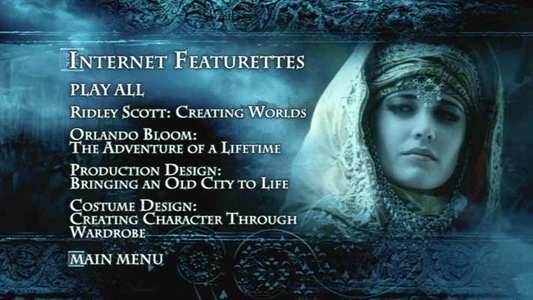
Video
The picture and cinematography is superb, but then this is Ridley Scott so what exactly did you expect? Less than perfection? There are a couple of shots that pay homage to the previous Gladiator; look to the scene where Reynard captures Saladin`s sister and where Balian lays his dead wife`s cross to rest in Jerusalem. In the main documentary this film is compared to Lawrence of Arabia, and it`s not that far off. I still think the latter is superior, purely because of the technology they had to hand at the time but this really does look sumptuous.
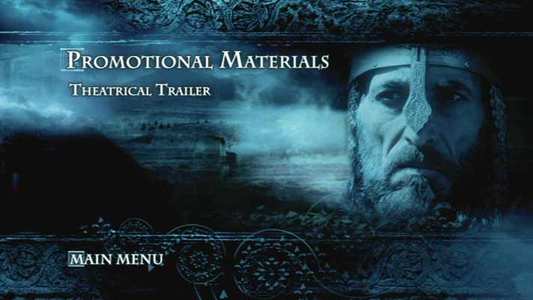
Audio
A glorious DTS track that really sets the atmosphere and also puts you right in the heart of the battle. The soundtrack work by Harry Gregson-Williams is glorious, as you would expect from someone schooled by Hans Zimmer.
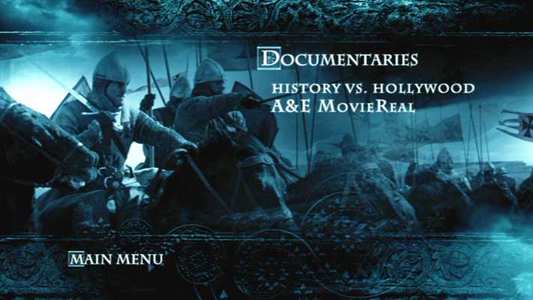
Features
A Pilgrim`s Guide - runs optionally during the main feature instead of subtitles. This is essentially a trivia track that gives quite detailed information related to the film that either directly takes reference from the script or picture, or provides background historical data. Very detailed and worth a peek for those who like to be educated.
Inside Look: Tristan and Isolde - very very brief look at a new film, not of much interest even if you want to know about this picture.
Interactive Production Grid - this is simply a comprehensive one and a half hour documentary that spans all aspects of the production. Rather than just setting up chapter selections, as per normal, this feature uses a grid so you can choose between Directing, Cast and Crew on one axis and Pre-Production, Production and Post-Production on the other. Thankfully there is also a `Play All` option.
History vs Hollywood - very interesting History Channel programme that compares how the film stands up against history in an attempt to show how accurate it is. Contains history lessons on the crusades and explains why Jerusalem was, and still is, so important to the Christian, Jewish and Muslim faiths.
A&E Moviereal - Another excellent TV programme that delved into real historical events to give a detailed history lesson on the events and characters portrayed in the film. The film is rooted in the historical facts of the time, and whilst some liberties have been taken, it is pretty accurate according to some of the experts interviewed.
Internet documentaries - presumably copied from the template proved by Lucasfilm, there are four mini-documentaries entitled Ridley Scott: Creating Worlds, Orlando Bloom: The Adventure of a Lifetime, Production Design: Bringing An Old City To Life, and Costume Design: Creating Character Through Wardrobe. All are very short, each about a couple of minutes in length, and most of the footage and interviews are re-used in the main documentary anyway so not much use overall…
Theatrical trailer
Overall an excellent set of extras that only requires a commentary to make it complete. The two TV programmes are an excellent addition that also follows the tradition of the History Channel involvement with Gladiator. Why not educate as well as entertain?
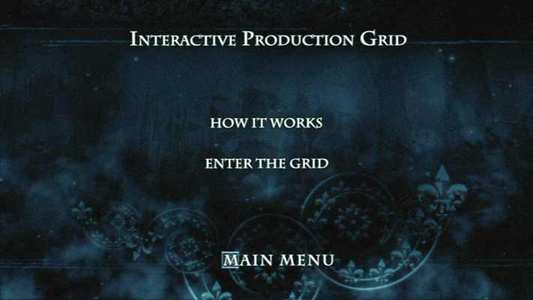
Conclusion
Ridley Scott is one of those directors that you just know is going to deliver. It`s not quite Gladiator during the Crusades but it`s just as epic a film. Set in the Holy Land of Palestine, the depiction of political grandstanding and war between Christian and Muslim is as valid now as it was then. Screenwriter William Monahan claims that he was inspired by this but makes no parallels in his script. I suspect that this was said to quell any form of controversy as ultimately the Muslims are seen as the force of moderation and good, alongside the dove-like Tiberias and Balian of course, against the hawk-like tendencies of Lusignan and Reynald. Whilst the Muslims are shown in a good light and their religion shown as both merciful and torlerant (see Saladin picking up a Christian cross and placing it tenderly in an upright position at the end of the picture), the more religious of the Christians are shown up in a bad light. The Knight Templars, the medieval equivalent of the SAS and known as forces of light through things like the Da Vinci Code and Indiana Jones And The Last Crusade, are depicted as a power hungry army thirsting for war and longing to kill Muslims; one of the opening scenes in Jerusalem shows a couple of Templars being hanged.for the latter, and a priest in Messina, Italy shouts at Godfrey`s party that `it is not a sin to kill a muslim, to paraphrase the man in a habit.
Eva Green plays the love angle in King Baldwin`s sister Sibylla, currently married to Lusignan but willing to sacrifice her husband for the good of the kingdom as per her brother`s wishes. She is simply stunning in this, as evidenced by the screenshots here, and is also quite understated. Whilst Bloom has his first leading role here, the mainstay of this film is a brilliant core of quality actors. Leading the way are Liam Neeson, Jeremy Irons, David Thewlis and an unseen Edward Norton. Following swiftly behind are Bernard Gleason, Ghassan Massoud and Marton Csokas. It was also good to see Kevin McKidd, albeit far too briefly in his role as Godfrey`s Serjeant at Arms. I was also amused to see Corrie`s Spider at both ends of the film. Martin Hancocks rather distinctive features appear as both the bloke who is ordered to behead Balian`s wife in the opening scene and also as presumably the same character who has made his own pilgrimage to Jerusalem, judging by the look of unspoken recognition from Balian before he makes his big speech.
On to Bloom himself. This is his first lead, but obviously not his first big film. Not sure why LOTR doesn`t get a mention in any of his interviews, but this is clearly not the first time he has appeared on a massive production or received a lot of attention, but maybe he`s just playing the game. He fits the role well, he`s filled out a bit since the days of Leglolas and the longer dark hair and facial hair help him out a bit more. There are faults with the character but they`re not down to him bar the big speech where it`s not quite delivered powerfully enough to warrant the unwavering respect given. The main fault with this character is that he is on a journey from blacksmith to defender of Jerusalem, illegitimate son to Lord, without much trouble. Balian becomes a master engineer and geologist, then a master tactician who sees clearly the folly of attacking Saladin in the open where veteran (but evil *insert wicked laugh here*) knights cannot. This may be an editing fault though.
Editing is the main problem I have with this film. It`s very long for a start and clearly Scott had much more footage than he needed for a commercial release. He talks in the featurette about a whole subplot involving Sibylla and her son (who is never mentioned or seen in the current cut) and clearly more was removed. The story jumps a bit and there is clearly much missing that will at some point form a Special Edition or Director`s Cut or whatever the term of choice is then. I`m also guessing a commentary will be available at that point too. The battle scenes are on the scale you would expect and just as visceral as anything seen in his previous swordplay film, but of a much larger scale with blood and dirt spraying across the screen. The battles are shorter than you would expect though, maybe more cuts for the next version, and therefore don`t quite make you feel like you`re part of it in the same way that Jackson`s trilogy did.
For all it`s faults though, some clearly self-imposed, it`s still a glorious film. It`s just not as good as it could have been. This could have been a masterpiece, instead it`s merely a quite brilliant film. Subtle distinction but worth making, I feel. Overall it achieves it`s purpose, a triumph of dialogue over war, the two main protagonists coming to a mutual respect for one another on the battlefield which the arrogance of the Christian zealots could not see or even care for.
One last thing: Jerusalem translates into `foundation of peace.` Who`d have thought?
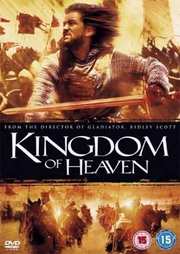




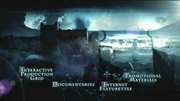
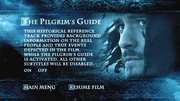

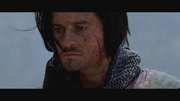
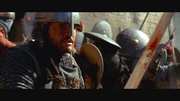
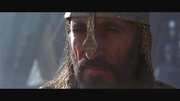
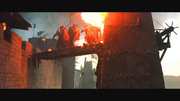
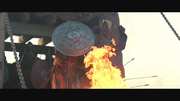

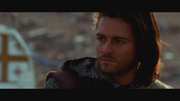

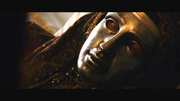
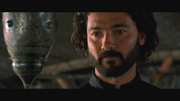
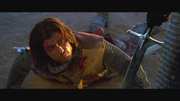
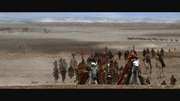


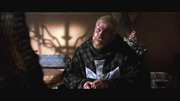
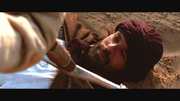
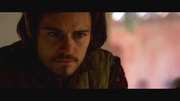
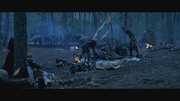
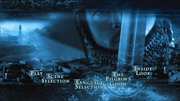
































Your Opinions and Comments
Be the first to post a comment!